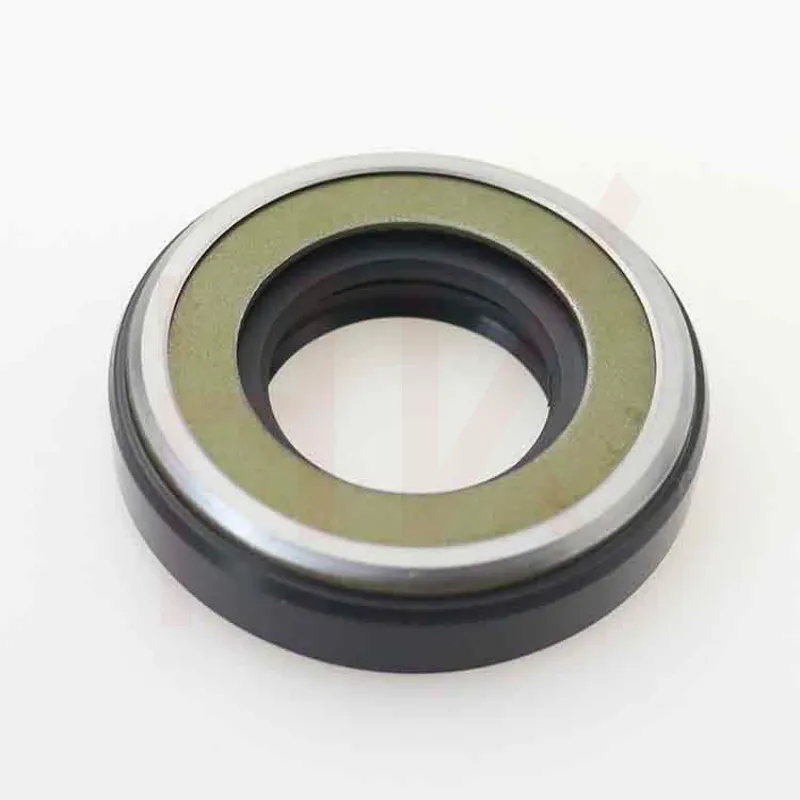Ноя . 18, 2024 23:33 Back to list
Hydraulic Scraper Seal for Enhanced Performance and Durability in Heavy Machinery Applications
Understanding the Scraper Seal Hydraulic System
In the modern engineering landscape, the scraper seal hydraulic system plays a crucial role in various applications, particularly in the fields of automotive engineering, manufacturing, and hydraulic machinery. This component is integral to ensuring effective sealing and fluid containment in hydraulic systems, enabling them to operate efficiently under high pressures.
What is a Scraper Seal?
A scraper seal, essentially, is a sealing device designed to prevent the ingress of contaminants while allowing the necessary movement of components within a hydraulic system. Unlike traditional seals that merely prevent leakage, scraper seals are specifically engineered to remove debris and contaminants from operational surfaces. This unique feature greatly enhances the longevity and performance of hydraulic systems.
Mechanism of Action
Scraper seals work by utilizing a flexible lip that comes into contact with the surface of the pistons or rods moving within the hydraulic cylinder. When the hydraulic system is in operation, this contact creates a barrier that scrapes away dirt, dust, and other contaminants that could potentially harm the system. The design of the scraper seal typically includes materials like polyurethane or rubber, chosen for their durability and resistance to wear.
Applications
scraper seal hydraulic

The application of scraper seal hydraulic systems is extensive. In the automotive industry, these seals are commonly used in power steering systems, hydraulic brakes, and suspension systems. They ensure that the hydraulic fluid remains uncontaminated, thereby maintaining optimal performance and safety.
In industrial machinery, scraper seals are utilized in hydraulic presses, excavators, and other heavy equipment. These environments often expose components to harsh conditions, including dust, grime, and extreme temperatures. Scraper seals protect sensitive hydraulic components from such adverse conditions, ensuring reliable operation.
Benefits of Scraper Seals
One of the primary benefits of scraper seals is their ability to improve the overall reliability of hydraulic systems. By reducing the ingress of contaminants, they minimize the risk of failures that could lead to costly repairs or, worse, accidents. Furthermore, the application of scraper seals can lead to enhanced efficiency in hydraulic systems, as they help maintain consistent pressure and reduce energy wastage.
Additionally, scraper seals can be customized to meet specific operational requirements. Depending on the application, engineers can modify the size, shape, and material of the scraper seal to ensure optimal performance. This adaptability makes them an ideal choice for many different hydraulic applications.
Conclusion
In summary, scraper seals for hydraulic systems are critical components that offer protection against contaminants while ensuring operational efficiency. Their role in extending the life of hydraulic systems and enhancing performance cannot be overstated. As industries continue to evolve and demand higher efficiency and reliability, the importance of technologies like scraper seals will only grow. Investing in high-quality scraper seals is an investment in the durability and efficiency of hydraulic machinery across various sectors.
-
TCN Oil Seal Metal Ring Reinforcement for Heavy Machinery
NewsJul.25,2025
-
Rotary Lip Seal Spring-Loaded Design for High-Speed Applications
NewsJul.25,2025
-
Hydraulic Cylinder Seals Polyurethane Material for High-Impact Jobs
NewsJul.25,2025
-
High Pressure Oil Seal Polyurethane Coating Wear Resistance
NewsJul.25,2025
-
Dust Proof Seal Double Lip Design for Construction Equipment
NewsJul.25,2025
-
Hub Seal Polyurethane Wear Resistance in Agricultural Vehicles
NewsJul.25,2025
-
The Trans-formative Journey of Wheel Hub Oil Seals
NewsJun.06,2025
Products categories
















